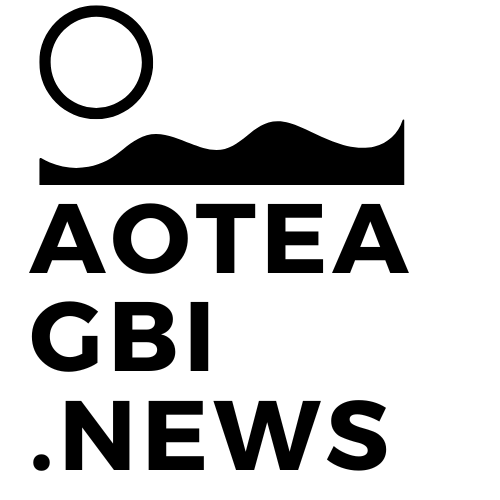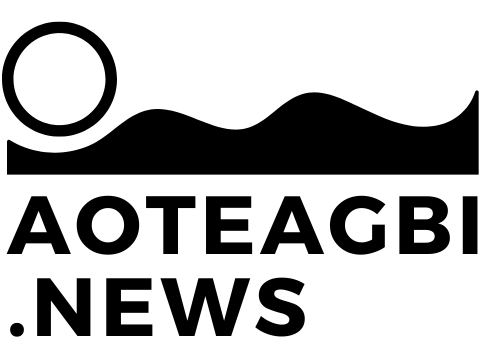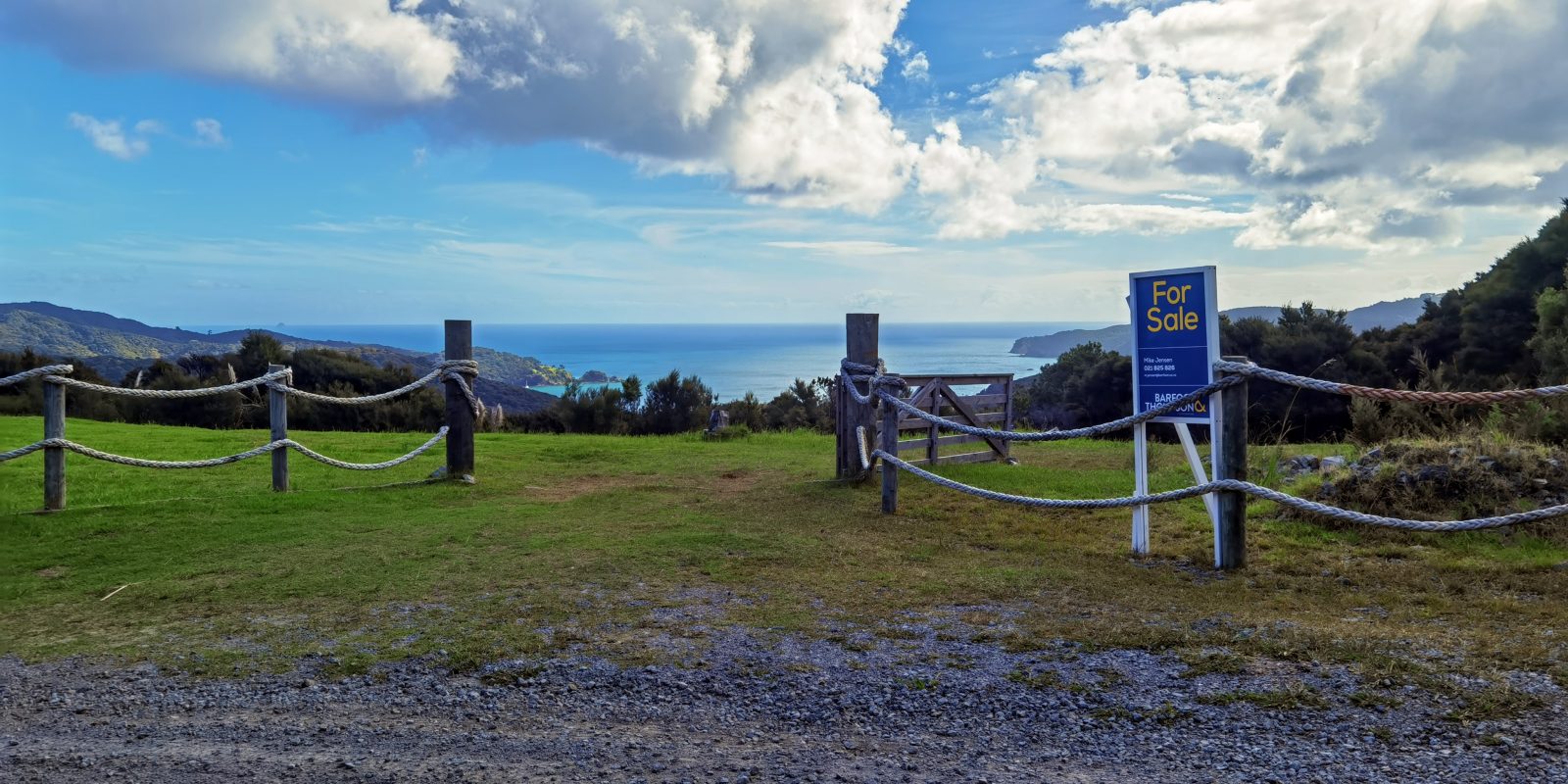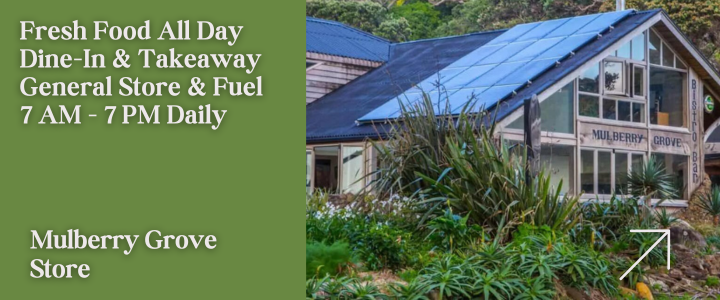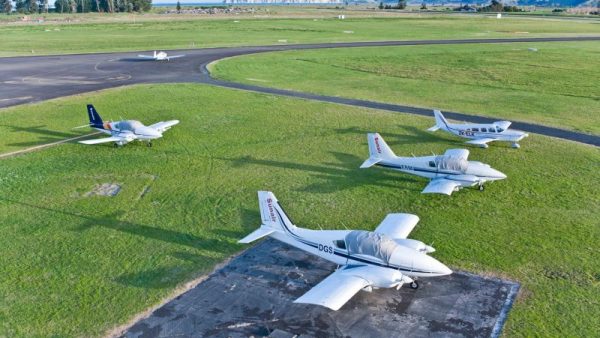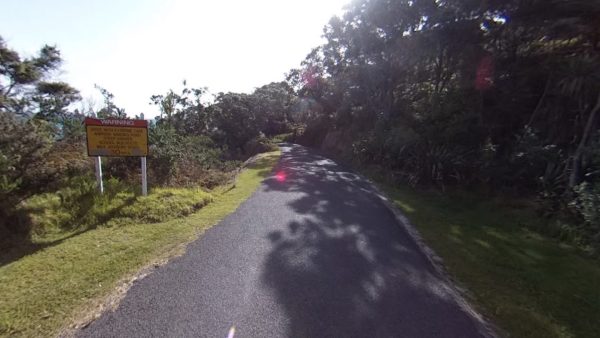The property located at 135 Rosalie Bay Road, encompassing 9181m², was acquired by its current owner in June 2022. This site, now the subject of a proposed helipad, boasts views over Mulberry Grove, stretching towards the mainland and the Coromandel. Photo / Will Trafford
Our serene skies are once again the subject of attention due to a contentious helipad proposal for Mulberry Grove. The community’s peace is (some argue) at stake with a proposed helipad to be located at 135 Rosalie Bay Rd, igniting a fiery discussion with dozens of comments on a recent Facebook post.
A local initiated the discussion, expressing worries about the potential noise pollution and its effect on the island’s tranquil nature.
“The flight path as tentatively approved comes in over water then over bush and that must remain 180 to 240 m from the nearest dwelling. Gee, that sounds like it could be darn unpleasant for current residents or those purchasing and building on sections already purchased and then discovering that they are forced to live nearly under the flight path of a helicopter,” the person commented.
This post prompted a wide range of reactions, reflecting diverse opinions on the development.
Some community members countered the concerns, pointing out inaccuracies in the post and suggesting that actual helicopter traffic might be less than anticipated. They highlighted that the helipad’s owner is not affiliated with a tourism business and that the mentioned figure of 75 flights was more a standard number for consent processes rather than an actual traffic prediction.
Others in the community voiced their fears, advocating for “QUIET SKIES” and emphasizing the need to maintain the island’s peaceful atmosphere and natural charm, which are crucial for attracting tourists and supporting the local community.
“If someone wants to create a petition against this situation, I’m sure the majority of locals would sign it,” another person mentioned.
Some raised practical questions about the need for a private helipad when the island already has an airport at Claris, just 13 kilometers away.
A few individuals seemed to minimize the issue, focusing on the brief duration of helicopter noise and the benefits of personal helicopter use. Others presented arguments in support of the helipad, citing the convenience of landing closer to home and easing congestion at the airport.
Additional perspectives were offered on the frequency of flights and the existing airport facilities. One humorously remarked that if they owned a helicopter, they would use it ‘daily’.
The situation on the motu reflects a broader trend seen across Aotea and Waiheke islands, where more helipads have been approved despite community opposition.
On Waiheke Island, the number of approved helipad sites has risen to 51, with six more applications in progress, causing frustration among locals. Aotea has seen a similar increase, going from zero to four approved helipads, with three additional applications under consideration by council planners. These planners, however, are mostly restricted to assessing the noise impacts of such developments.
Local board chairpersons Cath Handley of Waiheke and Izzy Fordham of Aotea have voiced their concerns. Handley described the situation as “deeply disturbing,” particularly regarding helipads approved near sensitive areas like the Te Matuku Marine Reserve. Fordham expressed her frustration, pointing out the oddity of multiple helipads in a single street and the feeling of losing a war of attrition against such developments.
“I mean, if you’ve got a short road with six properties in it, and five of them are wanting helipad, why couldn’t they just go for one and share? It’s kind of a little absurd.” she told RNZ.
Despite caps on flight numbers per helipad, the cumulative effect of these developments on the islands’ environment and lifestyle is a growing concern, most argue.
The local boards, along with Waitematā representatives, plan to continue their lobbying efforts as part of a larger push to get council planners to update guidelines applied to helipad applications, aiming for more consistency and consideration of broader impacts.
